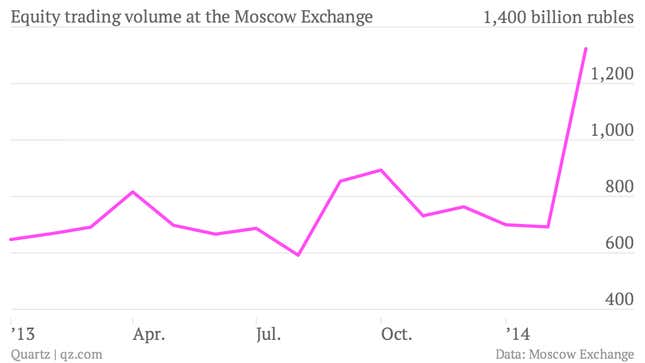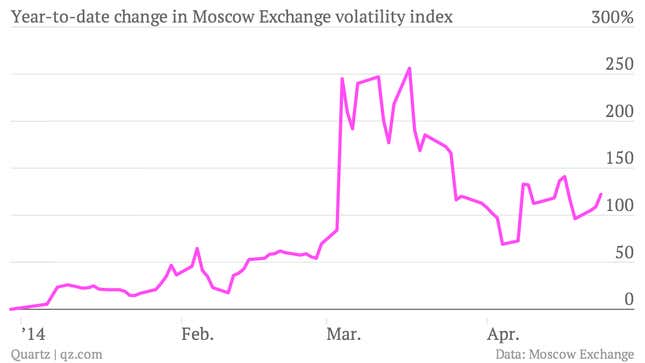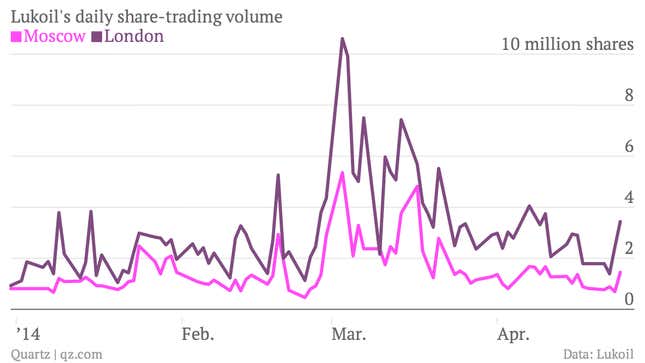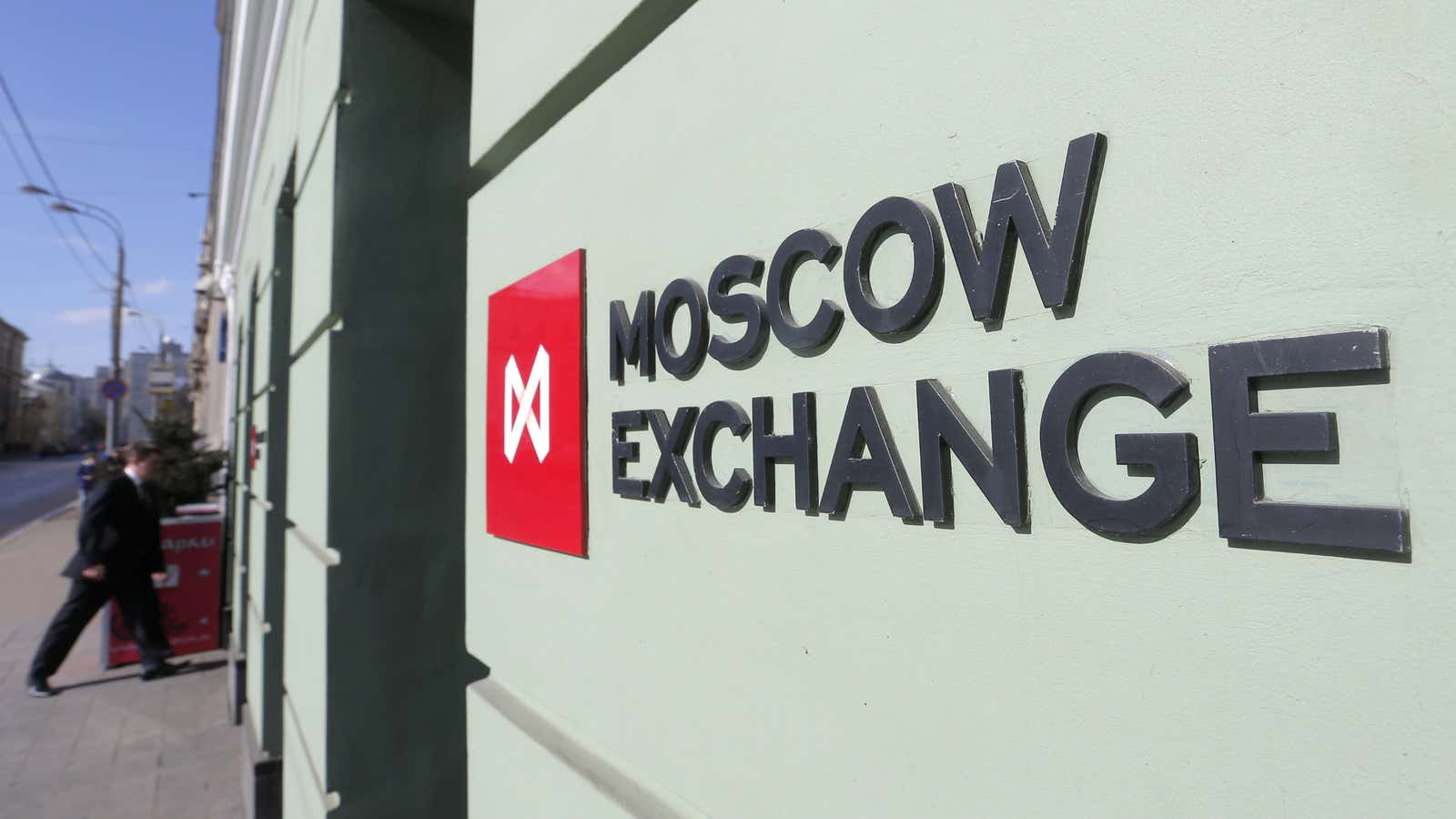These are tense times to be a Russian stock trader. Better instead to be a Russian stock exchange.
As investors react to each new provocation in eastern Ukraine, weighing whether additional Western sanctions are about batter Russian firms, trading volumes have exploded on the Moscow exchange. The value of shares traded in March doubled from the previous year:

The benchmark Micex index has lost more than 14% of its value this year, but this won’t bother the exchange as long as traders keep trading. Stock markets thrive on volume, with revenue tied to the fees they levy on every trade.
Although prices have generally drifted lower, Russian stocks have seen wild swings from one day to the other. The Moscow exchange’s index of volatility more than tripled during the worst of the crisis in Crimea, and is now merely double what it was at the start of the year:

Russian brokers can hardly keep up with the orders flooding in from clients. But the risk is that this bout of panic trading will eventually die down, with the bargain hunters currently snapping up shares deciding that they’ve taken on all the risk they can stomach. At that stage, investors would simply park their cash on the sidelines or, perhaps, outside of the country entirely.
Some support could come from Russian officials urging local companies with foreign listings to move their shares to Moscow instead. Western markets remain far deeper and more liquid than Moscow’s, even after the recent surge in trading. Russia’s biggest companies often maintain listings in New York or London in addition to Moscow, and trading abroad tends to be busier than at home. This is what that looks like for oil producer Lukoil:

If sanctions force Russian companies to curtail their activities in the West, then the Moscow market will be the only game in town. But only a fraction of volume currently traded on western markets would then transfer to Moscow. Tougher sanctions would also entail severe costs for the Russian economy, which would put a dent in local trading volumes as investors try to conserve their capital.
So far, the uncertainty and volatility stemming from the standoff in Ukraine has kept investors guessing, but hasn’t yet scared them away completely. As a result, the share price of the parent company that runs Russia’s main exchange is up 14% since the Crimean referendum in mid-March, beating the 4% gain for the broader market. Analysts at JPMorgan recently boosted their forecast for the exchange operator’s share price and upgraded their recommendation on the stock from “hold” to “buy.” The status quo, as shaky as it is, suits the Moscow exchange rather well.
